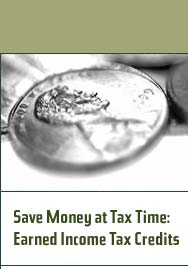

Changes to the bankruptcy law will take place October 17, 2005 and may alter some of the information on this page. The new legislation will impact credit counseling and financial education requirements, will require a means test for anyone considering filing a Chapter 7 bankruptcy, and will have implications for those trying to save their homes or property with an automatic stay. Please check the site again soon for more information and a more in depth explanation of these changes.
Each person has to live with his or her own decisions, and bankruptcy should be viewed as a financial act of last resort. It typically has serious and lasting implications.
There are 2 kinds of bankruptcies an individual may file: Chapter 7 and Chapter 13, which is also known as "wage-earner." In Chapter 7, an individual is able to wipe their debts clean, but they will most likely have to surrender any property or other assets to help pay their debt. Each Chapter 7 filing cost $500 to $1,000 and takes approximately four to six months to complete. A debtor may only file for Chapter 7 once every six years, and it will remain on his/her credit record for ten years.
A Debtor who files Chapter 13 is allowed to keep his/her property by setting up a debt repayment plan. An individual must have a source of steady income and stick to a very strict payment plan that will be created by the court. Chapter 13 costs on average $950 and typically lasts for three to five years. It will stay on an individual's credit record for up to twelve years. A debtor is eligible to file Chapter 13 every two years.
In our community, people are in various stages of their financial lives. Some have filed bankruptcy and are working their way out. Some are suffering from bad money management and could end up in bankruptcy if they aren't careful.
Each person has to live with his or her own decisions, and bankruptcy should be viewed as a financial act of last resort. It typically has serious and lasting implications.
There are 2 kinds of bankruptcies an individual may file: Chapter 7 and Chapter 13, which is also known as "wage-earner." In Chapter 7, an individual is able to wipe their debts clean, but they will most likely have to surrender any property or other assets to help pay their debt. Each Chapter 7 filing cost $500 to $1,000 and takes approximately four to six months to complete. A debtor may only file for Chapter 7 once every six years, and it will remain on his/her credit record for ten years.
A Debtor who files Chapter 13 is allowed to keep his/her property by setting up a debt repayment plan. An individual must have a source of steady income and stick to a very strict payment plan that will be created by the court. Chapter 13 costs on average $950 and typically lasts for three to five years. It will stay on an individual's credit record for up to twelve years. A debtor is eligible to file Chapter 13 every two years.
In our community, people are in various stages of their financial lives. Some have filed bankruptcy and are working their way out. Some are suffering from bad money management and could end up in bankruptcy if they aren't careful.
|
How do I recover from bankruptcy if I have already filed? If you are already in Chapter 13 (Wage Earner Plan), it's usually best to stay in the plan until completed. There are serious ramifications to dropping out of the plan, and it should only be done after evaluating all the legal ramifications. It is possible to increase payment into the plan and therefore speed up the discharge from the plan. In event you have filed Chapter 7 and your debts have been discharged, you should establish a new personal financial plan that does not include the need for credit. Credit will be difficult get from most reputable financial institutions and will generally be at risk-based rates, therefore it's best to avoid asking for credit. The best approach is to fill the bank up with cash and operate on a cash basis for at least two years. For most people, it is best to start re-establishing a good credit file after two years. By intentionally financing small purchases or opening small revolving accounts, you can enter good paying references into your personal credit report, which helps demonstrate the ability to manage new credit. However, any new derogatory information, such as one late payment, can thwart your efforts to re-establish. Credit scoring programs and creditors look for patterns that indicate you can now successfully manage your finances. Bankruptcy is the most serious form of credit failure. The best strategy, once a person has bankrupted, is to avoid credit in the future. Amass cash and pay for everything on a cash basis in going ahead. |
|
What causes Bankruptcy? The predominant cause of bankruptcy is a combination of poor decisions, failure to establish an emergency fund, and not insuring against unforeseen events. The typical bankruptcy evolves over a period of time and is then triggered by an event such as loss of a job, illness or divorce. The common scenario is the accumulation of too much debt combined with a triggering event. The best defense against bankruptcy is to have enough money in the bank to provide for 90 days of operating budget. This typically covers the loss of a job, illness, etc. The proper insurances Ð such as auto, homeowners, medical and dental -- also help buffer unforeseen accidents and illnesses. Divorce presents a particular dilemma. Typically both parties will need a good credit report to re-establish themselves as freestanding individuals, yet many marriages end with finances in disarray and bankruptcy. Every effort should be made by both parties to exit the divorce with good credit intact. FHA homebuyer guides say that your home or rent should not exceed 25 percent of your gross monthly income and your total monthly payments should not exceed 40 percent. This means that 60 percent of your gross income should be devoted to savings and normal household expenses. A good formula is at least 10 percent into savings on the front end, then no more than 40 percent debt including the home or rent, and 50 percent remaining for normal household expenses. |

|
Last year, MemphisDEBT, in cooperation with United Way of the Mid-South, hosted 16 Volunteer Tax Assistance sites over a three-month period to help low-income communities claim Earned Income Tax Credits (January - March 2003). Nearly 2,300 returns were processed. The average refund amount was $2,100, resulting in more than $4.8 million being returned to low-income families. It is estimated participating families saved approximately $460,000 in filing fees.
Contact MemphisDEBT to find out more. |